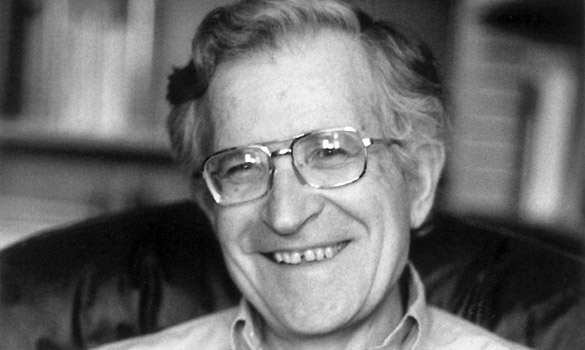Said and Done | In the Media | November 2016

A section of Said and Done
Full November 2016 edition
ECONOMICS
Selected Media Coverage for Bengt Holmström's Nobel Prize in Economics
More
PHILOSOPHY
Challenging harmful ideologies in belief and practice | Sally Haslanger
In this podcast from the UpClose Series Haslanger discusses what ideologies are, how they work, and how to challenge ideologies like racism or sexism that entrench injustice or privilege. "So when we are trying to show people that things are not as they seem, we have to do more than talk. We have to bring them into a new community... [and] teach new practices."
Listen: Haslanger podcast | UpClose Series
COMPARATIVE MEDIA STUDIES
Meeting ‘the Other’ Face to Face | Fox Harrell
“The Enemy,” underway at M.I.T., is the result of a collaboration between the noted photographer Karim Ben Khelifa and Fox Harrell, an associate professor of digital media. It holds the promise of opening up new frontiers for the integration of journalism and art in a socially oriented 21st-century performance piece poised at technology’s cutting edge.
Story at the New York Times
MUSIC
Concert organized by Fred Harris Jr. features works of MIT composer Peter Child
Organized by Fred Harris Jr., the concert featured the works of MIT composer Peter Child and included performers Joe Lovano, Ran Blake, Judi Silvano, Young-Nam Kim, and Daniel Kim.
Review in the Boston Music Intelligencer
LITERATURE + POLITICAL SCIENCE + HASTS
MIT at the Time and Temporality conference, Cambridge University
MIT was one of five invited universities to participate in a 2016 conference on Time and Temporality at Cambridge University. Diana Henderson, Professor of Literature, who served as a senior delegate, was accompanied by four MIT students: Marika Landau-Wells (Political Science), and HASTS students Marie Burks, Alison Laurence, and Tom Özden-Schilling '16. The event encourages students to think across disciplines and to share research internationally. PhD students in the arts, humanities, and humanistic social sciences who want information about the 2017 conference can contact Professor Henderson at dianah@mit.edu.
Podcast: Diana Henderson | Time and Temporality Conference
HASTS: HISTORY, ANTHROPOLOGY, SCIENCE, TECHNOLOGY, AND SOCIETY
The Shady History of Big Sugar
A timely and thought-provoking piece by recent HASTS alumnus David Singerman reflects on the recent revelations about sugar industry influence-peddling in scientific research. The Op-Ed draws on insights from Singerman's multiple-award-winning dissertation in the MIT History/Anthropology/Science, Technology, and Society Program (HASTS).
Op-Ed in the New York Times

Illustration by Matt Chase, The New York Times
ECONOMICS
What your dog’s vet bill says about America’s health care system | Amy Finkelstein
CBS reports on a new paper by MIT economist Amy Finkelstein, which finds “that the pet health care industry shares a number of similarities with the system for humans, including a rapid increase in spending as a share of GDP and high spending at the end of life.”
Story at NPR
ECONOMICS
Conversation about the Affordable Care Act | Jonathan Gruber
Jonathan Gruber, Professor of Economics, talks to WBUR about President Obama's Affordable Care Act and what the coming premium hikes mean for consumers.
Conversation at WGBH
SCHOOL EFFICIENCY AND EQUITY INITIATIVE
What if your kids were stuck in a poorly performing school? | Parag A. Pathak
Discussing the impact of charter schools in Boston, MIT economist Parag Pathak notes, “They were making enormous progress on closing the black-white achievement gap.”
Story at the Boston Globe
POLITICAL SCIENCE
Trust in the election process | Charles Stewart III
The Washington Post’s Wonkblog cites research by SHASS political scientist Charles Stewart III into voter confidence and the integrity of the U.S. electoral system.
Story at the Washington Post Wonkblog
POVERTY ACTION LAB
A new health care project won awards. But did it really work? | Abhijit Banerjee
NPR reports on recent research co-authored by J-PAL director Abhijit Banerjee. Banerjee and his colleagues launched a program in India that aimed to improve medical care in rural areas by offering basic training to amateur medical professionals.
Story at NPR
SCIENCE, TECHNOLOGY, AND SOCIETY
Bad debate behavior shows we have lost the art of discourse | Sherry Turkle quoted
Has American political speech been eroded by digital media? In this Washington Post op-ed, MIT’s Sherry Turkle observes how important it is to explain one’s thought process through meaningful discussion, which is where “empathy and intimacy” are fostered.
Story at the Washington Post
POVERTY ACTION LAB
Can training informal health providers improve India's healthcare? | Abhijit Banerjee
BBC News reports on new research co-published by JPAL co-director Abhijit Banerjee about the impacts of modest training for India’s many rural medical practitioners.
Story at the BBC
CENTER FOR INTERNATIONAL STUDIES
North Korea is racing towards the nuclear finish line | Vipin Narang quoted in story
“It seems like North Korea is trying to build a wide array of delivery platforms so that they’re able to hit Japan, South Korea, American assets in Asia, and eventually, the homeland,” said Vipin Narang, a political scientist and expert on nuclear proliferation at MIT.
Story in the Washington Post
CENTER FOR INTERNATIONAL STUDIES
U.S. confident on North Korea sanctions | Samuels and Heginbotham quoted in story
Two experts from the MIT SHASS Center for International Studies argue that if China were to agree to serious graduated sanctions on North Korea, the U.S. could agree to freeze the number of ground-based missile interceptors on the Korean Peninsula. Eric Heginbotham and Richard Samuels said that as part of a set of incentives to China, Washington "might also agree, after consulting South Korea, to withdraw THAAD from the peninsula when North Korean nuclear weapons no longer pose a threat."
Story in Reuters | Story at the New York Times
LINGUISTICS
80 most influential Americans over 80 | Noam Chomsky
USA Today cites MIT-SHASS Professor Emeritus Noam Chomsky as the eighth most influential American over 80 years of age, in part, for his ground-breaking work in the field of linguistics.
Story at USA Today

COMPARATIVE MEDIA STUDIES
Reading Bill Buckley in the Age of Trump | Heather Hendershot
The Wall Street Journal reviews Open to Debate, Professor Heather Hendershot’s new history of conservative media icon William F. Buckley.
Review at the Wall Street Journal
WRITING
Junot Diaz On Election 2016
Pulitzer Prize–winning author, MIT SHASS Professor of Writing, and Dominican immigrant Junot Díaz talks to NPR about the tumultuous Presidential election.
Story at NPR
WRITING
Díaz to edit Best American short stories | Henderson on the lessons of ‘Firing Line’
The Boston Globe reports that writing Professor Junot Díaz will edit the 2016 Best American Short Stories anthology, and CMS Professor Heather Hendershot’s new book highlights the importance of William F. Buckley’s show, Firing Line.
Story at The Boston Globe
POLITICAL SCIENCE
Do Fact Checks Matter? | Adam Berinsky
Questioning the value of fact-checking in an election, NPR cites research by MIT political scientist Adam Berinsky, who found that “presenting people with an untrue claim, even while refuting it, can in some cases make people believe the untrue claim even more.”
Story at NPR
ECONOMICS
As Trump attacks China as an economic threat, here’s the real risk | David Autor
“The worst of the China shock as we’ve measured it is over,” says MIT economist David Autor. “China has developed its manufacturing sector and as a share of its economy it’s now pretty stable,”
Story at the Wall Street Journal
ECONOMICS
Why the U.S. economy isn't the weakling Trump says it is | Daron Acemoglu quoted in story
"Over the past 10 years, the U.S. has done better than pretty much any other advanced country, certainly the European competitors," says Daron Acemoglu, an economist at the Massachusetts Institute of Technology.
Story at the New York Times
WRITING
Thomas Levinson: The Sexist Response to a Science Book Prize
"All of the Royal Society Award book finalists will reward you should you crack open their spines,” writes MIT SHASS faculty Thomas Levinson, whose book The hunt for Vulcan was a finalist for the Royal Society Award, "Wulf’s book was particularly deserving, which is why it was so infuriating to read a recent column that attempts to diminish her achievement.”
Story at The Atlantic
SECURITY STUDIES PROGRAM
The 'Livelihood Loophole' and other weaknesses of N. Korea sanctions | Jim Walsh
"We asked ... if sanctions are effective and, if not, why not? What are their unintended consequences and how they might be improved,” explains Jim Walsh, MIT Security Studies Program Research Associate.
Story
HISTORY
Video: Discussion on “Russia Expertise in American Foreign Policy” | Elizabeth Wood
MIT historian Elizabeth Wood participates in this in-depth panel discussion on “Russia Expertise in American Foreign Policy.”
Watch Video
ECONOMICS
Rebounding Economy Remains Fragile for Many | David Autor
The New York Times reports on a new paper by MIT economist Mr. Autor and three co-authors, which finds that voting patterns have shifted most in the parts of the country that lost the most jobs as a result of increased trade with China.
Story
LINGUISTCS
National Science Foundation video features the MIT Haiti Initiative
The National Science Foundation 2016 Video Showcase, "Advancing STEM Learning for All," features Professor Michel DeGraff's initiative to advance the use of Kreyòl in Haitian education.
Watch Video | MIT Haiti Initiative
KNIGHT SCIENCE JOURNALISM AT MIT
Leadership in the life sciences | Victor McElheny
Former KSJ director Victor McElheny has a recent article in Xconomy on leadership in the life sciences.
Story at Xconomy
KNIGHT SCIENCE JOURNALISM PROGRAM
Students take to Wikipedia to rewrite the wrongs of Internet science | Deborah Blum
Deborah Blum, director of MIT’s Knight Science Journalism Program, talks to the LA Times about stigma within the scientific community in regards to making science accessible to the general public.
Story
POLITICAL SCIENCE
Birtherism Is diminished but far From dead | Adam Berinsky
The New York Times draws upon research by MIT political scientist Adam Berinsky to show the dip and return of voters’ belief that President Obama was born in a country other than the United States.
Story at The New York Times
ECONOMICS
Humans will have edge over robots where work demands creativity | David Autor
In this article on the relationship between automation and human creativity, research by MIT economist David Autor is cited as showing that "with the advent of ATMs, banks reinvented their business model and ended up employing more people selling financial products.”
Story at The Guardian
ECONOMICS
Policy Prescriptions: Trump and Clinton on Economic Growth | David Autor
This AP article laying out the policy division between Presidential candidates Trump and Clinton, quoting MIT economist David Autor on the issue of trade: "Taxing consumers to subsidize domestic production is bad economics.”
Story at the New York Times
In the Media is a section of Said and Done
Full November 2016 edition
